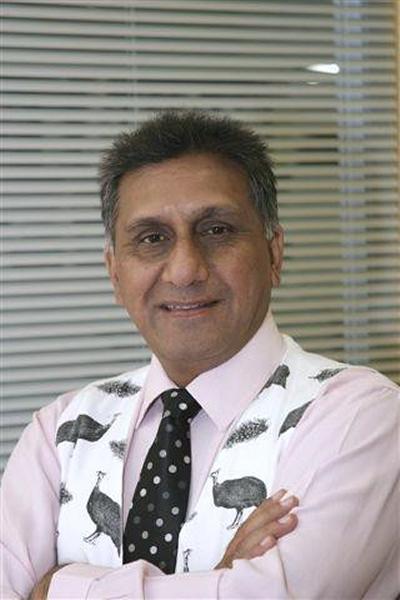Using Familial Cancers to Understand the Biological Basis of More Common Sporadic Cancers Seminar
- Time:
- 15:00
- Date:
- 21 March 2018
- Venue:
- Building 35, Room 1005, University of Southampton
For more information regarding this seminar, please email Prof Jon Essex at J.W.Essex@soton.ac.uk .
Event details
Seminar with Prof Raj Ramesar
Hereditary cancers have proven very useful in identifying major genes and pathways pointing to the causation of disease. However, and perhaps more importantly in the clinical setting, has been the use of the identified causative defect in familial management (both confirming diagnosis and predictively). For more than 25 years we have used a variety of methods including empirical risk assessment and management of high risk families through e.g. curveillance colonscopies. The identification of mutations in genes in the mismatch repair system has revolutionised the management of families with e.g. Lynch syndrome. In our South African cohort, the MLH1 exon 13 c.1528C>T mutation is the most common Lynch syndrome causing variant in the Mixed Ancestry population. Recently, a patient homozygous for this mutation, diagnosed with Constitutional Mismatch Repair Deficiency (CMMR-D) syndrome was described within this extended cohort. CMMR-D syndrome results in an increased predisposition to a range of cancers, most commonly brain and hematological tumours in early childhood. This presentation will (i) outline our historical work in a remote part of an African country, and illustrate the value of mutation detection and longitudinal followup with genetic counselling, and genetic testing as a preface to surveillance colonscopy; (ii) discuss the potential value in this era of Next Generation Sequencing to investigate the different types of cancers in Lynch syndrome, including the rare CMMR-D Syndrome towards discovering other important components of the biological pathways which may underlie the larger burden of common cancers.

Speaker information
Prof Raj Ramesar, University of Cape Town, South Africa. Raj Ramesar is Professor and Head of the Division of Human Genetics at the University of Cape Town and its Affiliated Hospitals in South Africa. This facility has wide-ranging clinical responsibilities from the quaternary and tertiary care levels, to extensive rural outreach programmes, in addition to diagnostic and research capabilities. As the Director of the MRC Human Genetics Research Unit, the emphasis of his research has been on disease susceptibility in South African populations, progressing from the commonly recognised inherited diseases, to those that are more complex yet more common and relevant to a large burden of disease. In this regard, he has been involved in researching Retinal Degenerative diseases for the past 25 years – and has been working very closely with the lay support group: Retina South Africa, in terms of developing and maintaining an active and translational research agenda. Furthermore, his most recent research enterprise is embodied in a large scale project entitled: ‘Human Diversity and Health’. As Director of the national Colorectal Cancer Research Consortium his focus has been on the genetics of familial colorectal cancers, and the most effective translation of laboratory findings to the field for optimum benefit of patients and their kin. In this regard, Raj recently received the (Vice Chancellor’s) Alan Pifer Award for ‘outstanding research in cancer genetics which shows relevance to the advancement of South Africa’s disadvantaged populations’. He also very recently (February 2016) received the International Human Genome Organisation’s (HUGO’s) Africa Award in Houston, Texas, USA. Apart from being on the editorial board of 9 international journals, Raj serves as co–chair of the Scientific and Medical Advisory Board of Retina South Africa, he is on the Executive Committee of the African Society for Human Genetics, and serves on several international advisory panels pertaining to genomic research, including the steering committee for the Human Heredity and Health: Africa (or H3Africa) Consortium (www.H3Africa.org). Raj is co-chair of the Board of the Sunflower Fund, Chair of the Board of the Africa Genome Education Institute; and Chairman of the Marist Sports Club in Rondebosch, South Africa. Raj led a successful bid to host the International Congress of Human Genetics in Cape Town in 2021 – promising to showcase remarkable advances in the area of genomic medicine and personalised health in Africa by that year.